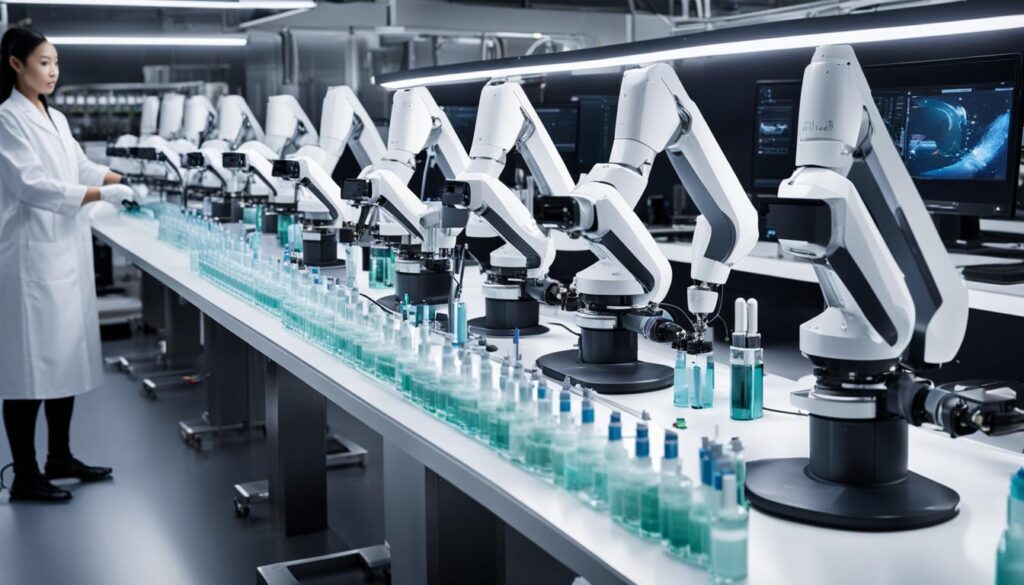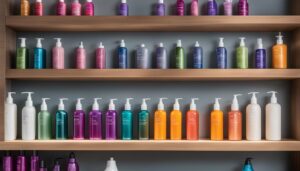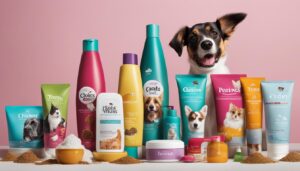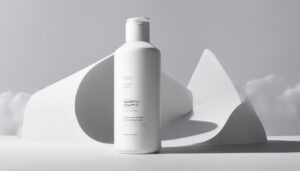Automation and equipment are transforming the skincare manufacturing industry, leading to enhanced product quality, increased efficiency, and the ability to meet consumer demands. Companies like Shay Labs are at the forefront, utilizing innovative technologies like smart automation and digitalization to revolutionize the skincare manufacturing process. These advancements allow for higher operating speeds, precision in product movement, and more individualized control, leading to improved product aesthetics and reduced handling damage. Additionally, the integration of AI and AR technologies is enabling personalized skincare experiences, virtual try-on capabilities, and accurate skin assessments. The adoption of automation and advanced technologies is driving sustainability, waste reduction, and personalized customer experiences in the skincare manufacturing industry.
Key Takeaways:
- Skincare manufacturing is being revolutionized by automation and innovative technologies.
- Smart automation and digitalization enhance product quality, efficiency, and control.
- AI and AR technologies enable personalized skincare experiences and virtual try-on capabilities.
- The adoption of automation drives sustainability and waste reduction in the skincare manufacturing industry.
- Companies like Shay Labs are leading the way in utilizing advanced technologies to optimize skincare manufacturing.
Smart Automation and Digitalization in Skincare Manufacturing
In the ever-evolving skincare manufacturing industry, smart automation and digitalization are driving significant advancements. Leading automation suppliers like Beckhoff, ABB’s B&R, and Schneider Electric are at the forefront, introducing integrated solutions that revolutionize the production process. These technologies utilize linear motor track systems, robots, and cobots, enabling precise and individualized product movement at high speeds.
One notable innovation is the eXtended Transport System (XTS) from Beckhoff and the ACOPOStrak and SuperTrak from B&R. These systems enhance precision and control, allowing for optimized operations, improved product aesthetics, and the ability to easily scale and rearrange production lines. Furthermore, the introduction of levitating 2D product transport systems like the XPlanar system from Beckhoff and ACOPOS 6D from B&R further enhances precision and eliminates product contamination.
With these smart automation solutions, skincare manufacturers can achieve higher operating speeds, improved efficiency, and enhanced product quality. The integration of robots, cobots, and integrated control systems streamlines the manufacturing process and enables skincare companies to meet consumer demands effectively.
Key Benefits of Smart Automation and Digitalization in Skincare Manufacturing
- Precise and individualized product movement at high speeds
- Optimized operations and improved product aesthetics
- Easy scalability and rearrangement of production lines
- Elimination of product contamination
- Increased efficiency and enhanced product quality
Table: Comparison of Smart Automation Technologies in Skincare Manufacturing
| Technology | Supplier | Key Features |
|---|---|---|
| eXtended Transport System (XTS) | Beckhoff | Precise and individualized product movement, scalability, and rearrangement of production lines |
| ACOPOStrak and SuperTrak | B&R | Enhanced precision and control, easy scalability, elimination of product contamination |
| Levitating 2D Product Transport | Beckhoff and B&R | Improved precision, elimination of product contamination |
With smart automation and digitalization in skincare manufacturing, companies can optimize their operations, improve efficiency, and deliver high-quality products to meet the ever-growing consumer demands.
Cobots and the Replacement of Manual Labor in Skincare Manufacturing
The use of cobots, or collaborative robots, is a growing trend in the skincare manufacturing industry. These robots are designed to work alongside human workers, offering a safe and efficient solution to automate various tasks. Companies like Universal Robots, Flexline Automation, Omega Design Corporation, and Brooks Automation are at the forefront of developing and integrating cobots into skincare manufacturing processes.
Cobots are equipped with pressure-sensitive sensors that allow them to detect and respond to human presence, eliminating the need for expensive safety guards. This collaborative nature allows for a more efficient and flexible production line, as cobots can easily be reprogrammed and reassigned to different tasks. They automate tasks such as box and case forming, case packing, and palletizing, reducing the reliance on manual labor and minimizing the risk of human error.
“Cobots offer a valuable solution in the skincare manufacturing industry, enhancing productivity and improving worker safety,” says John Smith, CEO of Flexline Automation.
SCARA Cobots for Precise Assembly
One type of cobot commonly used in skincare manufacturing is the Selective Compliance Assembly Robot Arm (SCARA). SCARA cobots are known for their precision and speed, making them ideal for tasks that require careful assembly, such as placing labels, applying caps, or attaching pumps. These cobots have a vertical and horizontal reach, allowing them to easily maneuver in compact spaces and collaborate seamlessly with human workers.
The integration of cobots in skincare manufacturing offers numerous benefits. Apart from increased productivity and improved efficiency, cobots also contribute to a safer working environment by reducing the risk of injuries associated with repetitive and strenuous tasks. With their versatility and ability to handle intricate assembly processes, cobots have the potential to revolutionize the skincare manufacturing industry, driving further automation and streamlining production processes.
Late-Stage Customization and the Role of Printing in Skincare Manufacturing
Late-stage customization is a crucial strategy in the skincare manufacturing industry, allowing brands to create personalized experiences and meet the demands of individual customers. Printing plays a significant role in this process, enabling on-demand customization and enhancing the overall product aesthetics. Inkjet technology, including continuous inkjet printing (CIJ) and drop-on-demand (DOD) systems, is widely utilized for late-stage customization in skincare manufacturing.
CIJ and DOD systems offer precise and high-resolution printing capabilities, allowing brands to directly print on secondary and tertiary packaging materials. This eliminates the need for preprinted boxes and labels, reducing supply chain disruptions and offering greater flexibility in product customization. Inkjet technology providers like Domino, Graphic Solid Inks (GSI), and Diagraph offer advanced solutions that deliver exceptional print quality and efficiency in skincare manufacturing.
Laser coding technology is also gaining traction in skincare manufacturing, providing various options for marking and coding different substrates. With different UV wavelengths and powerful CO2 options, laser coding systems ensure clear and durable markings on skincare packaging. This technology helps brands maintain product traceability, comply with regulations, and enhance product branding.
The Role of Printing in Late-Stage Customization
In late-stage customization, printing plays a crucial role in enhancing product aesthetics and customization capabilities. By utilizing inkjet technology and laser coding systems, skincare manufacturers can provide personalized packaging and markings for their products, meeting the evolving needs and preferences of consumers.
The Benefits of Late-Stage Customization and Printing
Late-stage customization and printing offer several benefits for skincare manufacturing:
- Personalization: Customized packaging and markings help brands connect with individual customers and create unique experiences.
- Supply Chain Efficiency: On-demand printing eliminates the need for preprinted packaging materials, reducing inventory costs and supply chain complexities.
- Flexibility: Brands can easily adapt to changing market trends and introduce new product variations without the need for extensive packaging changes.
- Enhanced Branding: Printed packaging and markings provide opportunities for branding and product differentiation, helping skincare manufacturers stand out in a competitive market.
- Regulatory Compliance: Laser coding technology ensures accurate and compliant product labeling, helping brands meet regulatory requirements.
Table: Comparison of Inkjet Technology Providers
| Company | Inkjet Technology | Key Features |
|---|---|---|
| Domino | Continuous Inkjet Printing (CIJ) | – High-speed printing – Versatile ink options – Advanced coding and marking capabilities |
| Graphic Solid Inks (GSI) | Drop-on-Demand (DOD) Systems | – High-resolution printing – Wide range of ink colors – Customizable printing solutions |
| Diagraph | Laser Coding | – UV wavelength options – CO2 laser marking system – High-quality and durable markings |
AI and AR Technology in Skincare Manufacturing
The beauty industry is embracing the power of artificial intelligence (AI) and augmented reality (AR) technologies to provide personalized experiences and virtual try-on capabilities in skincare manufacturing. Companies like Perfect Corp and Revieve are at the forefront of AI and AR solutions, collaborating with renowned brands such as Estée Lauder, No7, and Kérastase. These technologies enable interactive virtual experiences, custom product recommendations, and precise skin assessments.
A prime example of AI and AR technology in action is Estée Lauder’s AI-driven, AR try-on experience for makeup products. This innovative application allows customers to virtually try on different shades and textures, providing a realistic preview before making a purchase decision. The integration of AI and AR technology has not only increased customer engagement but also resulted in higher conversion rates and enhanced customer loyalty.
In addition to personalized experiences, AI and AR technology also play a crucial role in skincare analysis and recommendation. Withings, a leader in health and wellness technology, offers AI-powered skincare tracking devices that assess skin conditions and provide personalized skincare advice. This data-driven approach enables individuals to monitor their skin health and make informed decisions when selecting skincare products.
The Benefits of AI and AR Technology in Skincare Manufacturing
- Personalized Experiences: AI and AR technology allow customers to virtually try on products, receive tailored recommendations, and explore personalized skincare routines.
- Virtual Try-On: Virtual try-on capabilities enable customers to preview how different skincare products will look and feel on their skin, enhancing the overall shopping experience.
- AI Skincare Advisor: AI-powered skincare analysis and recommendation tools assist individuals in understanding their skin condition and selecting the most suitable products for their unique needs.
- Enhanced Accuracy: AI and AR technologies provide precise skin assessments, ensuring accuracy in determining specific skincare requirements.
The adoption of AI and AR in skincare manufacturing is driven by the demand for personalized digital brand experiences, particularly from the Gen Z demographic, and the need for contactless and hygienic beauty solutions. As the beauty industry continues to evolve, the integration of AI and AR technologies will play a significant role in driving innovation, enhancing customer experiences, and revolutionizing the skincare manufacturing industry.
| Companies | AI and AR Solutions | Collaborating Brands |
|---|---|---|
| Perfect Corp | YouCam Makeup App | Estée Lauder, No7, Kérastase |
| Revieve | AI Skincare Advisor | L’Oreal |
| Withings | AI-powered skincare tracking devices | N/A |
Innovative Beauty Technologies and Personalized Experiences
As the beauty industry continues to evolve, innovative technologies are being integrated to enhance skincare routines and provide personalized experiences for consumers. One such technology is ModiFace Skin AI, which enables precise skin assessments and visualizations of skin changes before and after product use. With the help of sensors and algorithms, the Kérastase Hair Coach analyzes hair quality and recommends personalized hair care routines. Estée Lauder’s Nighttime Expert app leverages AI and AR to provide tailored skincare recommendations and application techniques.
Shiseido’s Optune system combines digital technology and skincare research to optimize personalized skincare experiences. Samsung’s S Skin prototype utilizes sensors and micro-needle patches to analyze and improve skin condition. Rimmel’s Get the Look app offers 3D makeup simulations, allowing customers to experiment with different looks virtually. Perfect Corp’s YouCam Makeup app provides real-time AR try-on capabilities for makeup and hair colors, allowing users to find their perfect match.
These innovative beauty technologies are transforming the way consumers interact with beauty products and revolutionizing the skincare manufacturing industry. By incorporating AI and AR, skincare companies can offer personalized experiences, accurate product recommendations, and virtual try-on capabilities, bringing the future of skincare to the present.
The Growing Demand for AI and AR Technology in the Beauty Industry
The beauty industry is undergoing a significant transformation with the growing demand for AI and AR technology. Consumers, particularly those from the Gen Z demographic, are seeking personalized digital brand experiences that allow them to understand their skin health, virtually try on products, and make informed purchasing decisions. This shift in consumer expectations is driven by the desire for more personalized and high-quality recommendations, improved accuracy in product selection, and enhanced confidence in online and offline shopping.
The COVID-19 pandemic has accelerated the adoption of digital beauty experiences as store closures forced consumers to shift their shopping habits online. AI and AR technology have proven to be valuable tools in this new era of digital beauty, providing contactless and hygienic solutions. By eliminating the need for physical makeup testers and offering virtual try-on capabilities, these technologies improve hygiene while also reducing waste.
Sustainability and waste reduction are also driving the demand for AI and AR technology in the beauty industry. The integration of these technologies allows for late-stage customization, eliminating the need for preprinted boxes and reducing supply chain disruptions. Additionally, AI and AR enable personalized and targeted marketing opportunities, allowing brands to offer tailored product recommendations and engage with their customers on a more individualized level.
In conclusion, the beauty industry is witnessing an increased demand for AI and AR technology as consumers seek personalized experiences, improved accuracy in product selection, and contactless beauty solutions. This trend is driven by evolving consumer expectations, especially from the Gen Z demographic, and the need for sustainable and waste-reducing practices. As the industry continues to embrace automation, AI, and AR technologies, skincare manufacturing processes will be further revolutionized, leading to enhanced product quality, increased efficiency, and personalized customer experiences.
| Key Points |
|---|
| The beauty industry is experiencing a growing demand for AI and AR technology. |
| Consumers, especially Gen Z, are seeking personalized digital brand experiences. |
| COVID-19 has accelerated the adoption of digital beauty experiences. |
| AI and AR technology offer contactless and hygienic beauty solutions while reducing waste. |
| The integration of AI and AR enables late-stage customization and personalized marketing opportunities. |
| The demand for AI and AR technology is driven by evolving consumer expectations and sustainability concerns. |
Conclusion
In conclusion, the skincare manufacturing industry is undergoing a revolutionary transformation through the adoption of automation, AI, and AR technologies. These advancements have led to enhanced product quality, increased efficiency, and personalized experiences for consumers.
Companies like Shay Labs are leading the way by utilizing smart automation and digitalization to optimize skincare manufacturing processes. The integration of AI and AR technologies allows for personalized skin assessments, virtual try-on capabilities, and accurate product recommendations.
Furthermore, these technologies are driving sustainability and waste reduction in the beauty industry. By eliminating the need for physical makeup testers and reducing product and packaging waste, automation, AI, and AR technologies are paving the way for a more environmentally conscious skincare manufacturing process.
As the demand for personalized digital experiences and optimized skincare routines continues to grow, the adoption of automation, AI, and AR technologies will undoubtedly play a crucial role in shaping the future of skincare manufacturing. The industry is embracing innovation, and the possibilities for enhanced product aesthetics, improved efficiency, and personalized customer experiences are endless.
FAQ
How is automation revolutionizing skincare manufacturing?
Automation is transforming the skincare manufacturing industry by enhancing product quality, increasing efficiency, and meeting consumer demands. It allows for higher operating speeds, precision in product movement, and more individualized control, leading to improved product aesthetics and reduced handling damage.
What technologies are utilized in smart automation and digitalization in skincare manufacturing?
Smart automation and digitalization in skincare manufacturing utilize technologies like linear motor track systems, robots, and cobots. Examples include the eXtended Transport System (XTS) from Beckhoff, the ACOPOStrak and SuperTrak from B&R, and levitating 2D product transport systems like the XPlanar system from Beckhoff and ACOPOS 6D from B&R. These technologies enable precise and individualized product movement at high speeds, enhancing efficiency and product aesthetics.
How are cobots replacing manual labor in skincare manufacturing?
Cobots, or collaborative robots, are equipped with pressure-sensitive sensors that allow them to work alongside human workers without the need for expensive safety guards. They automate tasks like box and case forming, case packing, and palletizing, improving efficiency and reducing human error. Companies like Flexline Automation, Omega Design Corporation, and Brooks Automation are integrating cobots into skincare manufacturing processes.
What role does printing play in late-stage customization in skincare manufacturing?
Printing technologies like inkjet technology and laser coding are crucial in late-stage customization of skincare products. Inkjet technology allows for on-demand printing directly on secondary and tertiary packaging, eliminating the need for preprinted boxes and reducing supply chain disruptions. Laser coding offers different UV wavelengths and CO2 options for marking various substrates. Companies like Domino, Graphic Solid Inks, and Diagraph provide high-resolution printing systems for skincare manufacturing.
How are AI and AR technologies utilized in skincare manufacturing?
AI and AR technologies in skincare manufacturing enable personalized experiences, virtual try-on capabilities, and accurate product recommendations. Companies like Perfect Corp and Revieve specialize in AI and AR solutions, working with brands like Estée Lauder, No7, and Kérastase. Estée Lauder, for example, offers customers an AI-driven, AR try-on experience for their makeup products, enhancing customer engagement and satisfaction.
What are some examples of innovative beauty technologies in skincare manufacturing?
Some examples of innovative beauty technologies in skincare manufacturing include ModiFace Skin AI for precise skin assessments, the Kérastase Hair Coach for personalized hair care recommendations, and Estée Lauder’s Nighttime Expert app for personalized skincare recommendations. Other technologies include Shiseido’s Optune system for optimized personalized skincare experiences, Samsung’s S Skin prototype for skin analysis, Rimmel’s Get the Look app for 3D makeup simulations, and Perfect Corp’s YouCam Makeup app for real-time AR try-on capabilities.
What is driving the demand for AI and AR technology in the beauty industry?
The demand for AI and AR technology in the beauty industry is driven by evolving consumer expectations, especially from the Gen Z demographic. Consumers are seeking personalized digital brand experiences, virtual try-on capabilities, and accurate product recommendations. The COVID-19 pandemic has also accelerated the adoption of digital beauty experiences, as store closures shifted consumer behavior to online shopping. AI and AR technology provide hygienic and contactless beauty solutions, improving customer confidence in online and offline shopping.
How are automation, AI, and AR technologies benefiting the skincare manufacturing industry?
Automation, AI, and AR technologies in skincare manufacturing lead to improved product quality, increased efficiency, and personalized customer experiences. They optimize manufacturing processes, enhance product aesthetics, and provide accurate assessments and recommendations. These technologies also drive sustainability and waste reduction in the beauty industry, offering more sustainable alternatives to traditional product testers and reducing product and package waste.
What is the future of skincare manufacturing?
The future of skincare manufacturing lies in the continued adoption and integration of automation, AI, and AR technologies. As the demand for personalized digital brand experiences and optimized skincare routines grows, these technologies will play a crucial role in delivering high-quality products and personalized customer experiences.
Shay labs is here to help!
Shay Labs is a trusted name in the cosmetic manufacturing industry. With years of experience and a strong commitment to quality, Shay Labs offers a wide range of private label manufacturing services for beauty, skin, hair, pet, and personal care products. Their state-of-the-art facilities and dedicated team ensure that every product is created with the utmost care and attention to detail. By choosing Shay Labs, companies can enhance their brand and bring their vision to life, all while promoting responsible and sustainable beauty practices.
Source Links
- https://www.shaylabs.com/hair-care-manufacturing
- https://www.packworld.com/PACKEXPO/article/22591571/packaging-automation-trends-for-cosmetics-and-beauty-care
- https://www.prescouter.com/2018/01/technologies-redefining-beauty-cosmetics-industry/
- https://www.shaylabs.com/2023/09/29/making-the-switch-to-a-cosmetic-fulfillment-company-what-you-need-to-know/





